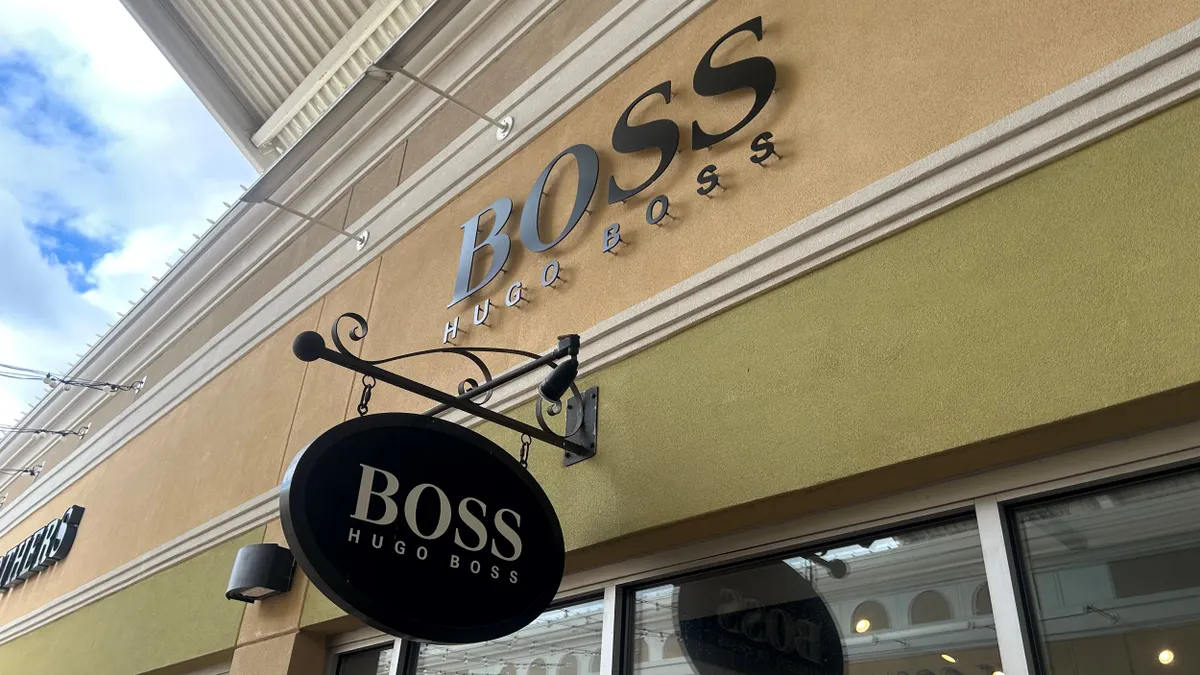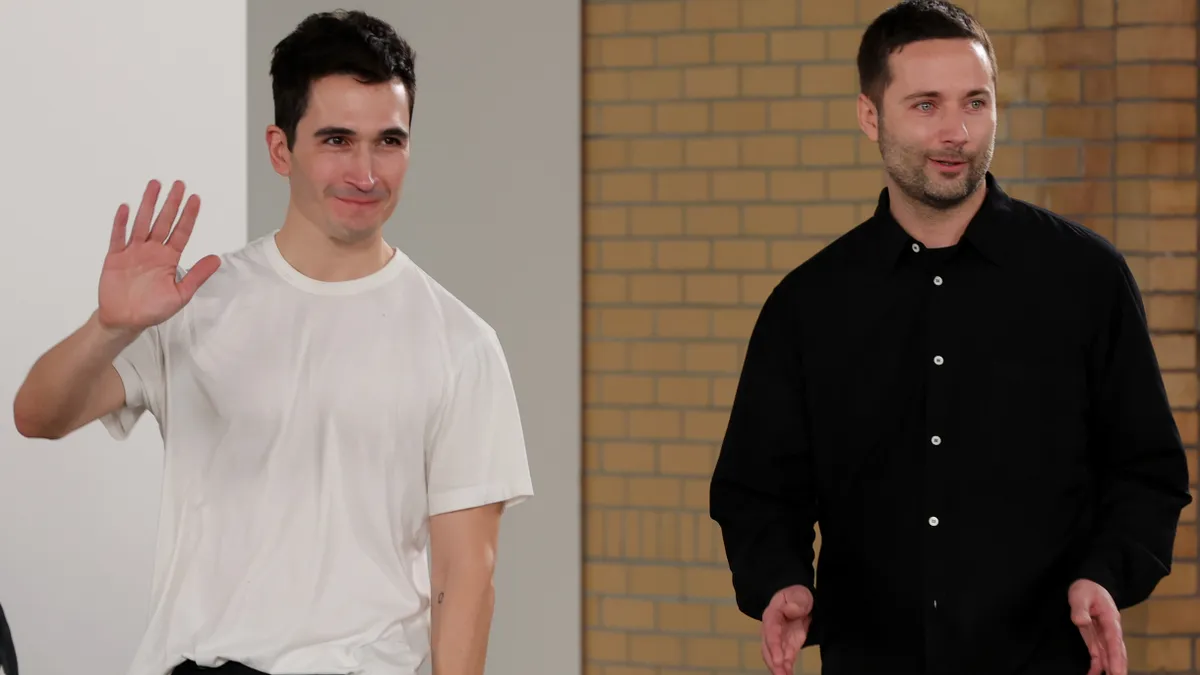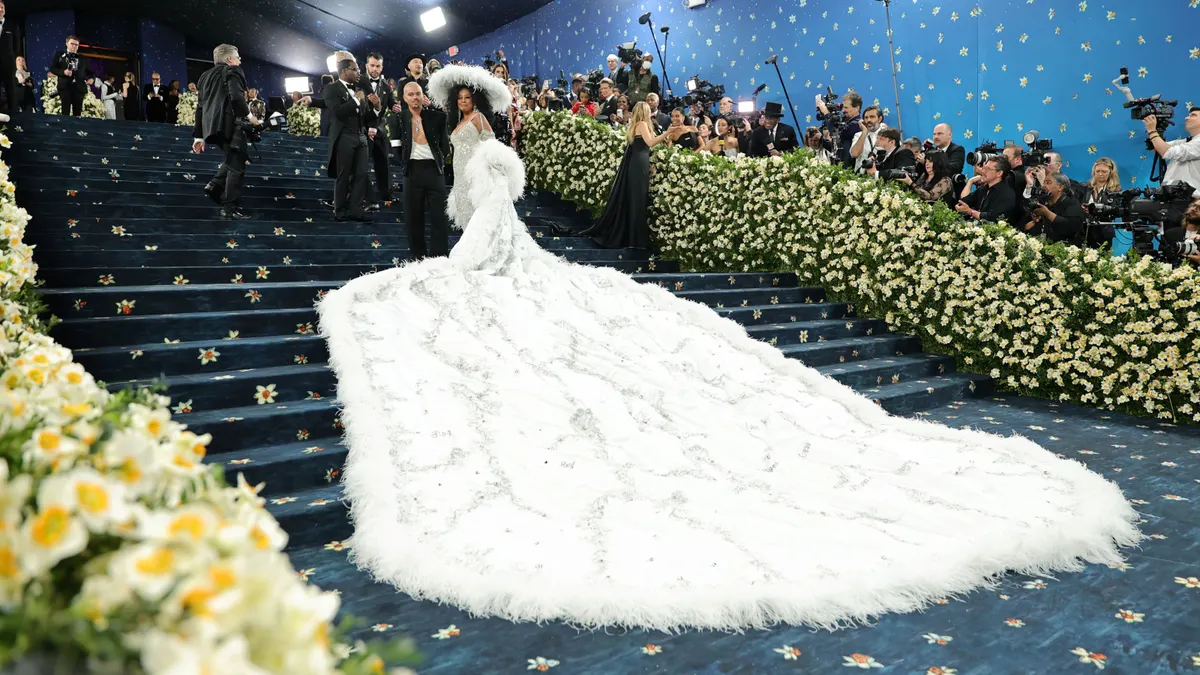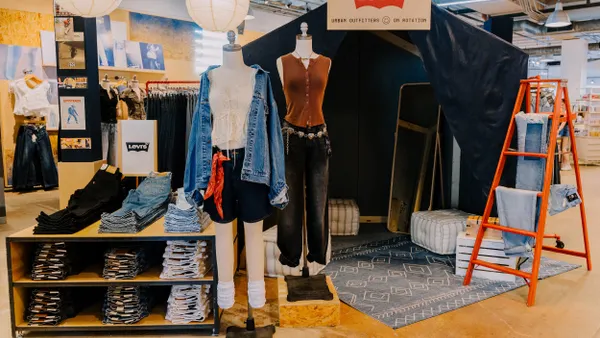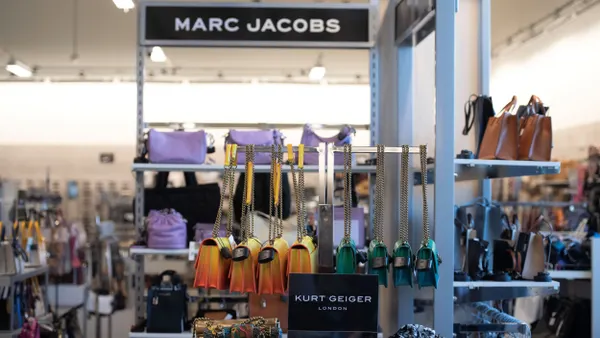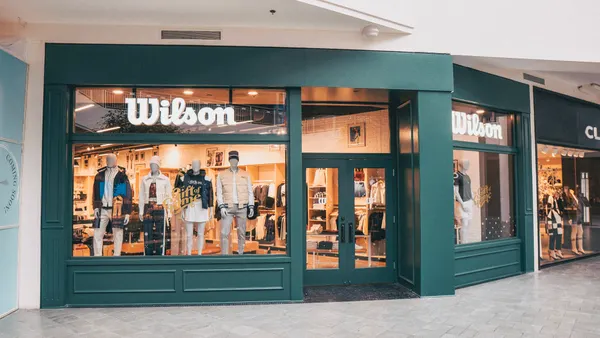Dive Brief:
- Hugo Boss reported group sales of 1 billion euros ($1.15 billion) for the second quarter, representing a 1% decrease year over year, according to a Tuesday earnings release.
- By brand, Hugo saw the largest drop, with sales declining 14%. Boss womenswear fell 10%, while Boss menswear grew 2%.
- The Germany-based fashion house saw decreases in each region it operates, with the exception of the combined region of Europe, the Middle East and Africa, which grew by 2%. The Americas declined by 6% and the Asia Pacific region decreased by 8%.
Dive Insight:
Hugo Boss said its second quarter saw “noticeably dampened consumer sentiment,” which it attributed to macroeconomic and geopolitical uncertainty. It also said that muted consumer confidence and light store traffic particularly had an impact on sales in China.
By sales segment, the company’s licensing business saw a 9% decrease. Hugo Boss attributed this decline to a tough prior-year comparison, which benefited from an eyewear contract renewal.
The fashion house’s brick-and-mortar retail business decreased 4%, while brick-and-mortar wholesale was flat. Meanwhile, its digital business grew 5%.
Boss menswear’s 2% growth was strengthened by heightened consumer engagement and sell-through rates for the first Beckham X Boss collection, codesigned by David Beckham.
Meanwhile, Hugo Boss said it was taking proactive steps to help the long-term performance of Boss womenswear and the Hugo brand, including streamlining product assortment and refining sales activities.
“Importantly, we remain committed to our long-term ambition of strengthening brand relevance over short-term gains,” CEO Daniel Grieder said in the release.
For the second half of the year, the company plans to create cost efficiency and work on brand relevance. It expects to make profitable improvements for the rest of the fiscal year.
In terms of sourcing, Hugo Boss said it has taken preventative measures to keep up with changing tariff policies, including increasing inventory coverage in the U.S. and rerouting products from China to other regions.
Last quarter, Yanmei Tang, analyst at Third Bridge, said Hugo Boss appeared to be well positioned against tariff pressures, with more than 50% of its production in Europe and another 20% in Turkey.
Hugo Boss continues to expect group sales of between 4.2 billion and 4.4 billion euros for the full year.



